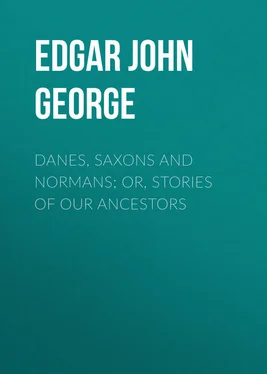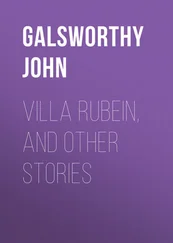John Edgar - Danes, Saxons and Normans; or, Stories of our ancestors
Здесь есть возможность читать онлайн «John Edgar - Danes, Saxons and Normans; or, Stories of our ancestors» — ознакомительный отрывок электронной книги совершенно бесплатно, а после прочтения отрывка купить полную версию. В некоторых случаях можно слушать аудио, скачать через торрент в формате fb2 и присутствует краткое содержание. Жанр: foreign_antique, foreign_prose, Историческая проза, на английском языке. Описание произведения, (предисловие) а так же отзывы посетителей доступны на портале библиотеки ЛибКат.
- Название:Danes, Saxons and Normans; or, Stories of our ancestors
- Автор:
- Жанр:
- Год:неизвестен
- ISBN:нет данных
- Рейтинг книги:5 / 5. Голосов: 1
-
Избранное:Добавить в избранное
- Отзывы:
-
Ваша оценка:
- 100
- 1
- 2
- 3
- 4
- 5
Danes, Saxons and Normans; or, Stories of our ancestors: краткое содержание, описание и аннотация
Предлагаем к чтению аннотацию, описание, краткое содержание или предисловие (зависит от того, что написал сам автор книги «Danes, Saxons and Normans; or, Stories of our ancestors»). Если вы не нашли необходимую информацию о книге — напишите в комментариях, мы постараемся отыскать её.
Danes, Saxons and Normans; or, Stories of our ancestors — читать онлайн ознакомительный отрывок
Ниже представлен текст книги, разбитый по страницам. Система сохранения места последней прочитанной страницы, позволяет с удобством читать онлайн бесплатно книгу «Danes, Saxons and Normans; or, Stories of our ancestors», без необходимости каждый раз заново искать на чём Вы остановились. Поставьте закладку, и сможете в любой момент перейти на страницу, на которой закончили чтение.
Интервал:
Закладка:
Edward returned to Normandy, and passed the next five years of his life in monkish austerities. But when the Danish domination came to an end, and the Grand Council was held at Gillingham, Godwin, as if to atone for consigning one of the sons of Ethelred to a tomb, hastened to place the other on a throne. Edward, then in his fortieth year, was accordingly elected king, and, on reaching England, was crowned at Winchester, in that sacred edifice where his illustrious ancestors and their Danish foes reposed in peace together.
It is related by the chroniclers of this period, that when Edward, arrayed in royal robes, and accompanied by bishops and nobles, was on the point of entering the church to be crowned, a man afflicted with leprosy sat by the gate.
"What do you there?" cried the king's friends. "Move out of the way."
"Nay," said Edward, meekly, "suffer him to remain."
"King!" cried the leper, in a loud voice, "I conjure you, by the living God, to have me carried into the church, that I may pray to be made whole!"
"Unworthy should I be of heaven if I did not," Edward replied; and, stooping forward, he raised the leprous man on his back, bore him into the church, and prayed earnestly, and not in vain, for his restoration. Roger Hoveden even asserts that the king's prayers were heard, and that the leper was made whole from that hour. But, in any case, there can be no doubt that on the fierce nobles and people of his realm such a scene as this must have produced a strange impression. It was believed that Edward's sanctity gave him the power to heal; and belief in the influence which his hand was in this way supposed to have, led to the custom of English sovereigns touching for the king's evil.
In fact, however, people soon discovered that Edward was more of a monk than a monarch; and far happier would he have been if he had remained in Normandy, and sought refuge from the rude and wicked world in the quiet of a cloister. It soon appeared, moreover, that the son of Ethelred was intended to be king but in name; and that the son of Wolwoth was to be virtually sovereign of England. The plan was not unlikely to succeed. Indeed, Edward was so saintly and so simple, that Godwin might, to the hour of his death, have exercised all real power, had he not, with the vulgar ambition natural to such a man, risked everything for the chance of his posterity occupying the English throne.
It appears that Godwin, by his marriage with Githa, the Danish princess, had, besides six sons, two daughters, Edith and Thyra. Edith, at the time of the restoration of the Saxon monarchy, is described as having been young, beautiful, and remarkable for her learning. It can hardly be doubted that her character and disposition contrasted favourably with the other members of the family that then domineered in England; and she was praised for not resembling them. "As the thorn produces the rose," people said, "so Godwin produced Edith."
The idea of making his daughter the wife of a king, and perhaps living to see his grandson wear a crown, fired Godwin's imagination; and it is even said that Edward, before leaving Normandy, was forced to swear, in the most solemn manner, that, if elected, he would marry Edith. But however that may have been, the imperious Earl insisted on the meek king becoming his son-in-law; and a man who, even in the days of his youth, had been much too saintly to think of matrimony, was compelled, when turned of forty, to espouse a woman on the hands of whose father was his brother's blood, and to whose family he had, naturally enough, a thorough aversion.
VI.
THE KING AND THE KING-MAKER
It was 1042 when Edward – afterwards celebrated as the Confessor – found himself placed by the hand of Godwin on the throne of his ancestors, and provided with a wife and queen in the person of Edith, Godwin's daughter. At first, matters went pleasantly enough, and, indeed, appeared promising. But no real friendship could exist between the Anglo-Saxon king and the man whom he regarded as his brother's murderer. Ere six years passed, Godwin and the king were foes, and England was the scene of discord and disorder.
At that time the prejudice of the Anglo-Saxons against foreigners was peculiarly strong. Before returning to the land of his birth, therefore, Edward was under the necessity of promising that he should bring with him no considerable number of Normans. The condition was observed in so far that few Normans did accompany Edward to England. But no sooner was he seated on the throne, and in a position to grant favours, than his palace was open to all comers; and guests from the court of Rouen flocked to the court of Westminster.
When Edward's Norman friends presented themselves, they met with the most cordial welcome; and being, for the most part, men of adventurous talents, they soon began to look upon the country as their property, and grasped at every office which the king had to bestow. Ere long, Norman priests found themselves bishops in England; Norman warriors figured as governors of English castles; and the court became so thoroughly Normanized, that the national dress, language, and manners, went wholly out of fashion.
The Anglo-Saxon nobles do not appear to have manifested any jealousy of the king's friends. In fact, their inclination was quite the reverse. The polish and refinement of their new associates excited their admiration, and they hastened to adopt the Norman fashions. Throwing aside their long cloaks, they assumed the short Norman mantle, with its wide sleeves; they neglected their native tongue to imitate, as well as they could, the language spoken by Norman prelates and warriors; and, instead of signing their names, as of old, they began to affix seals to their deeds. The Anglo-Saxon dress, manners, and language were no longer accounted worthy of men who pretended to rank and breeding.
Meanwhile, Godwin not only steadily abstained from adopting the Norman fashions, but looked upon the king's foreign friends as mortal foes, and regarded everything about them with hatred. He felt, with pain, that they kept alive the memory of Prince Alfred and their murdered countrymen, and he perceived with uneasiness that each new arrival had the effect of weakening his influence with the king. It was under such circumstances that he set his face against foreigners, and found means of exciting the popular prejudices against the man whom, for selfish purposes, he had, to the exclusion of the true heir, placed on the English throne. The multitude, ever ready to be deluded, took precisely the view Godwin wished, and began to speak of the pampered and overgrown adventurer as a neglected and long-suffering patriot.
"Is it astonishing," said one, "that the author and support of Edward's reign should be indignant at seeing new men from a foreign nation raised above him?"
"And yet," observed another, "never does he utter a harsh word to the man whom he himself created king."
"Curse all Norman favourites!" exclaimed a third.
"And," cried a fourth, "long life to the great chief – to the chief magnanimous by sea and land!"
While such was the situation of affairs, Eustace, Count of Boulogne, happened, in the year 1048, to come as a guest to England. Eustace was husband of Edward's sister, Goda; and the king naturally strove to make the visit of his brother-in-law as pleasant as possible. After remaining for some time at the English court, however, Eustace prepared to return home; but on reaching Dover, where he intended to embark, an awkward quarrel took place between his attendants and the townsmen. A fray was the consequence; and in a conflict which took place, twenty of the count's men were unfortunately slain. Angry and indignant at the slaughter of his followers, Eustace, instead of embarking, turned back to demand redress, and hastened to lay his complaint before the king, who was then keeping his court in the castle of Gloucester.
Читать дальшеИнтервал:
Закладка:
Похожие книги на «Danes, Saxons and Normans; or, Stories of our ancestors»
Представляем Вашему вниманию похожие книги на «Danes, Saxons and Normans; or, Stories of our ancestors» списком для выбора. Мы отобрали схожую по названию и смыслу литературу в надежде предоставить читателям больше вариантов отыскать новые, интересные, ещё непрочитанные произведения.
Обсуждение, отзывы о книге «Danes, Saxons and Normans; or, Stories of our ancestors» и просто собственные мнения читателей. Оставьте ваши комментарии, напишите, что Вы думаете о произведении, его смысле или главных героях. Укажите что конкретно понравилось, а что нет, и почему Вы так считаете.












